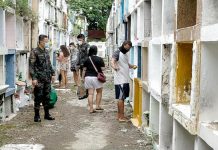
LAST WEEK we marked National Heroes Day once again. August 25 was a date thick with reflection—on revolutions fought, sacrifices made, and the courage required to stand for something greater than oneself.
A few days before that, we remembered the martyrdom of Ninoy Aquino. Not too long ago, we honored overseas Filipino workers, teachers, frontliners, soldiers, mothers, and even farmers as modern-day heroes.
But today, let us lend our gaze to the quiet, oft-overlooked backbone of our democracy: the dedicated civil servants of government. They may not have fought in trenches or sparked revolutions, but many of them fight every day—against inefficiency, indifference, red tape, corruption, nepotism, abuse of power, and the erosion of public trust.
Civil servants, by definition, are employees of government agencies who operate under the rules of the Civil Service Commission (CSC). They are not politicians, not elected or pampered appointees. They are the public school teachers writing lesson plans under candlelight, the social workers wading through floods to deliver relief, and the clerks who stamp your permits with precision and patience. They are the nurses at public hospitals, the engineers designing bridges, and the barangay secretaries issuing residency papers with handwritten care. They are the state employees who show up before 8 a.m., without flair or fanfare, not because a camera is watching but because the country needs them to.
Unfortunately, they are also the ones unfairly shadowed by the weight of their colleagues’ sins. Corruption, inefficiency, apathy—these are words that hound the term “government employee” like stubborn barnacles.
But such generalizations are both inaccurate and unjust. According to former CSC Chairperson Karlo Nograles, there are over 1.9 million civil servants in the Philippines, and the majority of them perform their duties with diligence and dignity, often in difficult conditions. In fact, during the pandemic, it was these very people who manned checkpoints, processed emergency assistance, taught through unstable internet connections, and administered vaccines without extra pay.
Recently, I had a surprisingly smooth experience dealing with several government offices—Professional Regulation Commission, National Bureau of Investigation, City Hall at the Atrium, Clerk of Court, Police Precinct 1, Iloilo State University of Fisheries Science and Technology, and Brgy. Lapuz Norte. At the PRC alone, I renewed three licenses in just fifteen minutes. No fixers, no noon breaks, no fuss—just clear, professional, even kind service.
It felt almost unreal, especially for anyone used to the usual bureaucratic maze. I even wrote about how I managed to process eight documents from six different agencies in just eight straight hours. To my surprise, government worked the way it should.
And yet, these moments should not be rare or treated as anomalies. They should be the norm. And they can be, when leadership insists on systems that reward competence, instill discipline, and value human dignity over hierarchy. It is not rocket science. As observed by the Philippine Institute for Development Studies (PIDS), improved frontline services translate to improved public perception and even national productivity. What it takes is a culture shift—from “pwede na” to “dapat tama.” (To be continued)/PN







